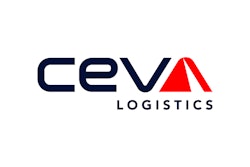Companies that depend on supply chains to operate and thrive in today’s complex business environment understand that a coordinated, meticulous information technology (IT) approach is essential for success. In an effort to alleviate much of the complexity, many companies turn to IT solutions from third-party logistics providers (3PLs) to help manage and operate their supply chains.
While a number of traditional logistics functions have become commoditized, 3PLs are differentiating themselves by offering the flexibility to align with multinational companies’ IT needs, as well as catering to small to midsized business (SMB) requirements, which are completely different. This flexibility has become essential for 3PLs, and it is critical for companies to choose a partner that aligns with its IT infrastructure based on the size of the company and the sophistication of its logistics processes.
Given that most large, market-leading corporations have well-defined logistics operating models and IT systems, they must partner with 3PLs with technology solutions that can “shadow” their processes. In this scenario, 3PLs’ technology completely integrates and interconnects with their customers’ systems in a way that is virtually transparent. These 3PL partners must adhere to customers’ compliance standards, mimic their operating models and become fully embedded in customer processes.
Integrating with a company’s web servers, applications and electronic data interchange (EDI) standards ensures that 3PLs can operate transparently, and that companies can seamlessly utilize all 3PL information for internal customer purposes. For example, by virtualizing transactional information, a 3PL partner could track and trace shipments, directly integrating the details into a company website through a web services approach. This integration provides large companies tremendous operational efficiencies throughout their distributed supply chain.
Another consideration is the 3PL’s ability to offer local knowledge and expertise in various regions around the world. While a coordinated global system is necessary in general, customized solutions for each region can deliver better results.
For small to midsized companies, the challenges are vastly different, but the end goal of supply chain efficiency is equally critical. Most SMBs aren’t blessed with robust logistics operations and are looking to increase the sophistication of these capabilities. Even though the complexities of global supply chains are the same for SMBs as for multinationals, these smaller companies often lack the IT infrastructure to support it. This is where 3PL partners can play a key role.
To succeed in this environment, many SMBs fully adopt technology stacks from their 3PL partners to optimize flow, visibility and supplier integration. Whether the SMB leverages a 3PL’s branding or white labels the solution, the underlying technology performs all the business-critical logistics tasks that are necessary. For example, 3PLs often manage complex routing portals in which end customers and dealers can track and trace shipments in real time.
In an increasingly global business environment, companies of all sizes face enormous challenges managing complex supply chains. Partnering with experienced 3PL companies can help large enterprises and SMBs not only with their logistics operations, but also with their IT systems designed to manage these global supply chains. The key is finding a 3PL partner that has the expertise and flexibility to fully integrate with corporate IT systems, or offer a complete supply chain technology solution depending on the customer’s needs.
Vittorio Aronica is the senior vice president of information solutions and services at CEVA Logistics.
















